12 Minutes
VILNIUS, LITHUANIA — In the hallowed halls of FTMC (Center for Physical Sciences and Technology), the pace of life is measured in semesters, grant cycles, and peer-reviewed publications. But outside the university gates, the global economy is moving at the speed of light, driven by a ruthless technological arms race between the United States and China.
This collision of timelines, the slow, methodical pace of research versus the frantic urgency of the market, was the central tension at the recent high-level panel discussion hosted by LithuaniaBIO. Titled "How can we strengthen academia-industry links across Borders?", the session was expected to be a standard diplomatic exchange on cooperation. Instead, it evolved into a raw, unfiltered, and urgent wake-up call regarding the state of European innovation.
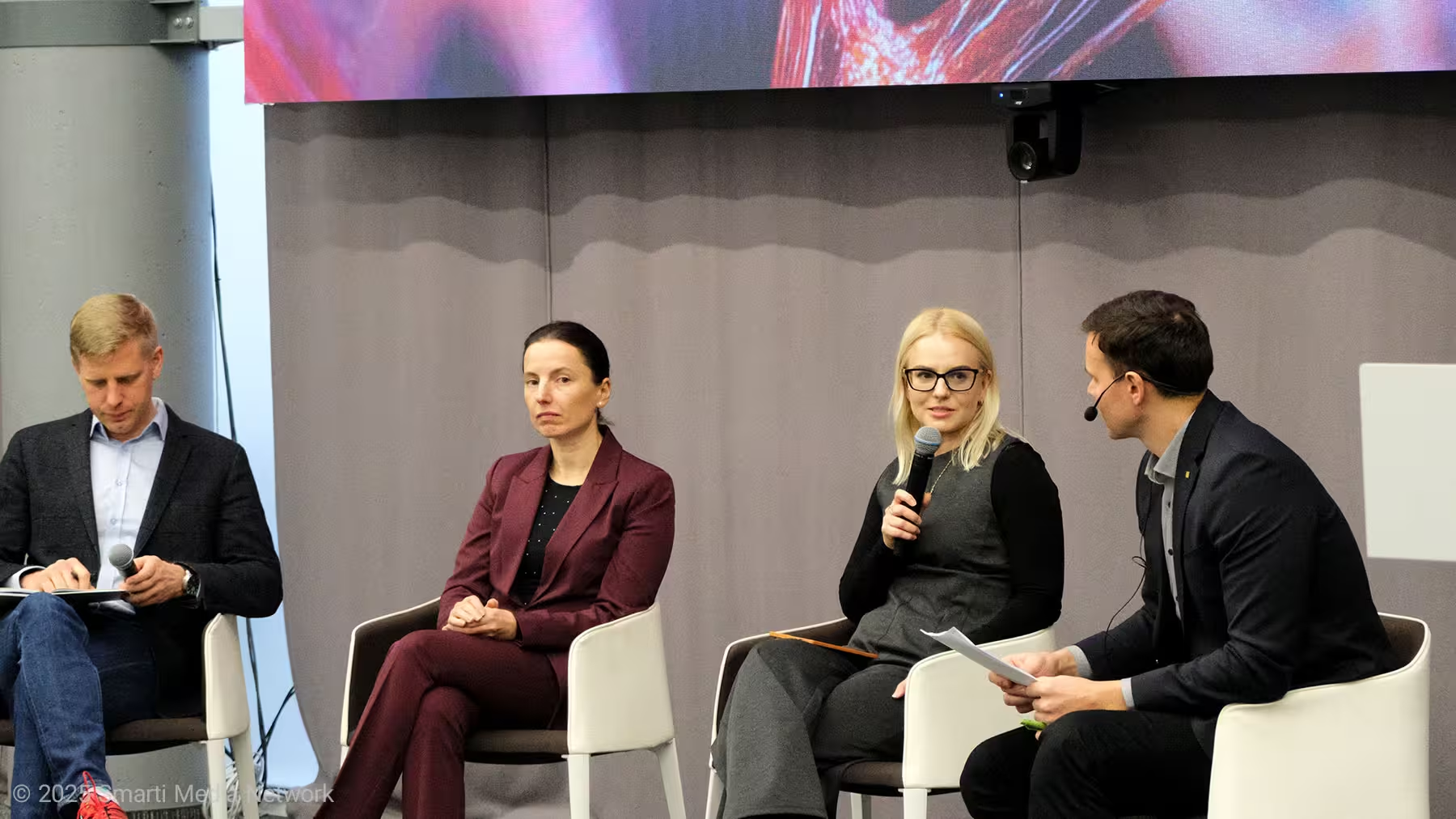
Moderated by Mindaugas Bulota, Head of the National Innovation and Entrepreneurship Center at Kaunas University of Technology, the panel brought together key figures who stand on the firing line between the lab bench and the boardroom:
Jakub Jasiczak, Chairman of the Polish Association of University Knowledge Transfer Companies.
Kristina Babelytė-Labanauskė, Head of Innovation Office, Vilnius University.
Viktorija Vaštakaitė-Kairienė, Deputy Director at the Bioeconomy Research Institute, Vytautas Magnus University.
What emerged was a portrait of a region rich in talent but paralyzed by "museum-like" infrastructure, risk-averse corporations, and a fundamental misunderstanding of what it takes to win in the Deep Tech era.
Part I: The Diagnosis – “We Are at War”
The tone of the discussion was set immediately by Jakub Jasiczak, a self-described "disruptor" in the Polish ecosystem. Rejecting the polite ambiguity often found in such summits, Jasiczak framed the current situation not as a "challenge," but as a conflict.
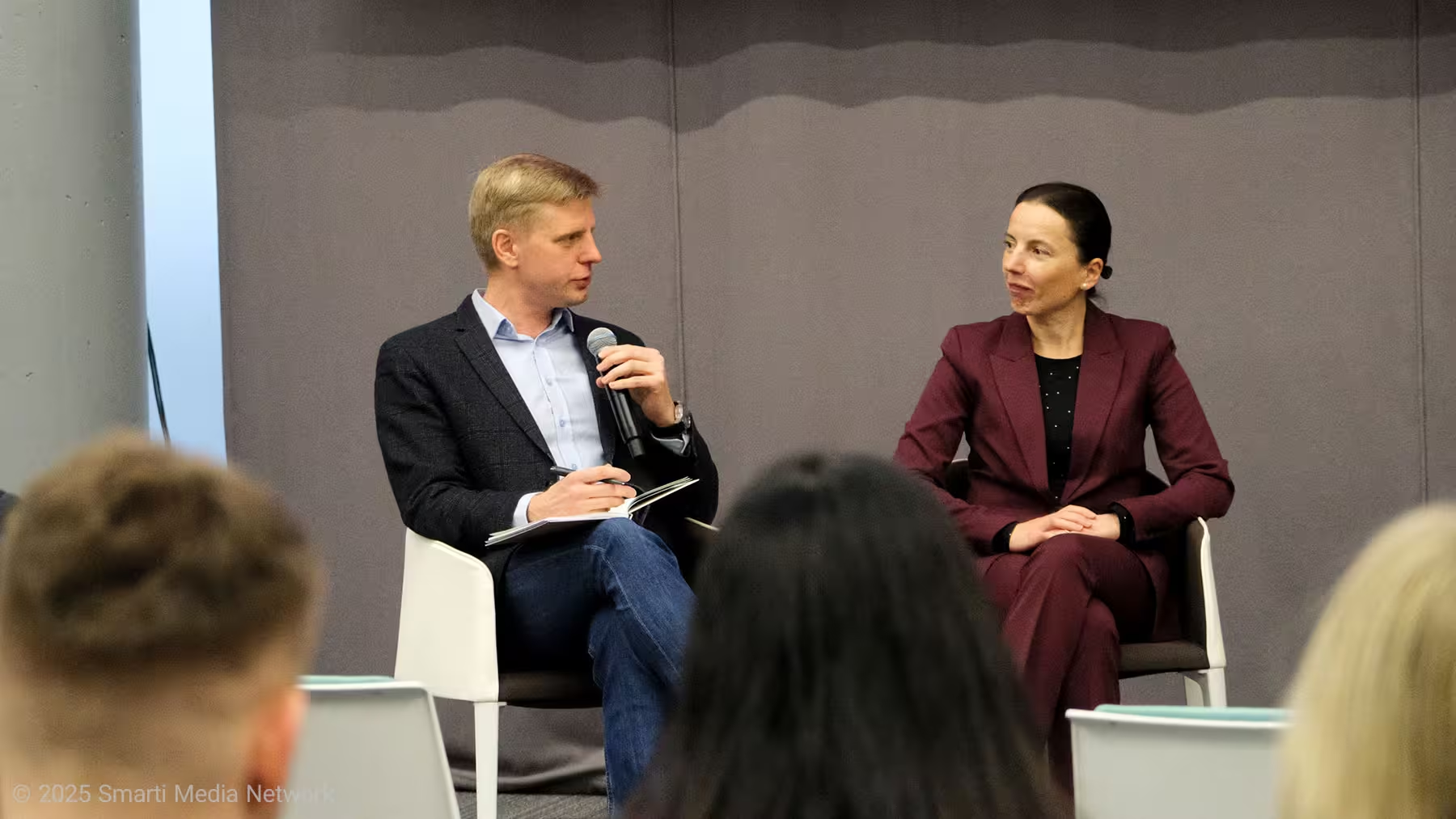
"This is 2025 and we are at war," Jasiczak declared, silencing the room. "China and the US, they don't respect any rules. We are losing the battle."
His argument struck at the core of the European malaise: complacency. While European nations debate regulations and form committees, global competitors are aggressively commercializing technologies that define the future—AI, biotech, and quantum computing.
The "Comfort Zone" Problem
The panelists identified a critical cultural flaw within the academic community: the misalignment of incentives. "I am here to annoy many Polish ministries and to put scientists outside of their comfort zone," Jasiczak stated. He argued that the traditional model of technology transfer—where a researcher invents something, throws it "over the wall" to business, and expects a check—is dead.
The problem, however, is that scientists have "forgotten why they stayed in science." "It should be for impact," Jasiczak noted. "But they are in this [cycle of] collecting points, publications, and grants... doing administrative jobs. They really lost the strategic thinking: 'What is the value of the job I'm doing?'"
Kristina Babelytė-Labanauskė of Vilnius University offered a counter-perspective from the institutional side. She acknowledged the disconnect but pointed to the structural nature of the beast. "University mission is not all about producing results for the company," she reminded the audience. "It also has to produce knowledge... fundamental research also needs attention."
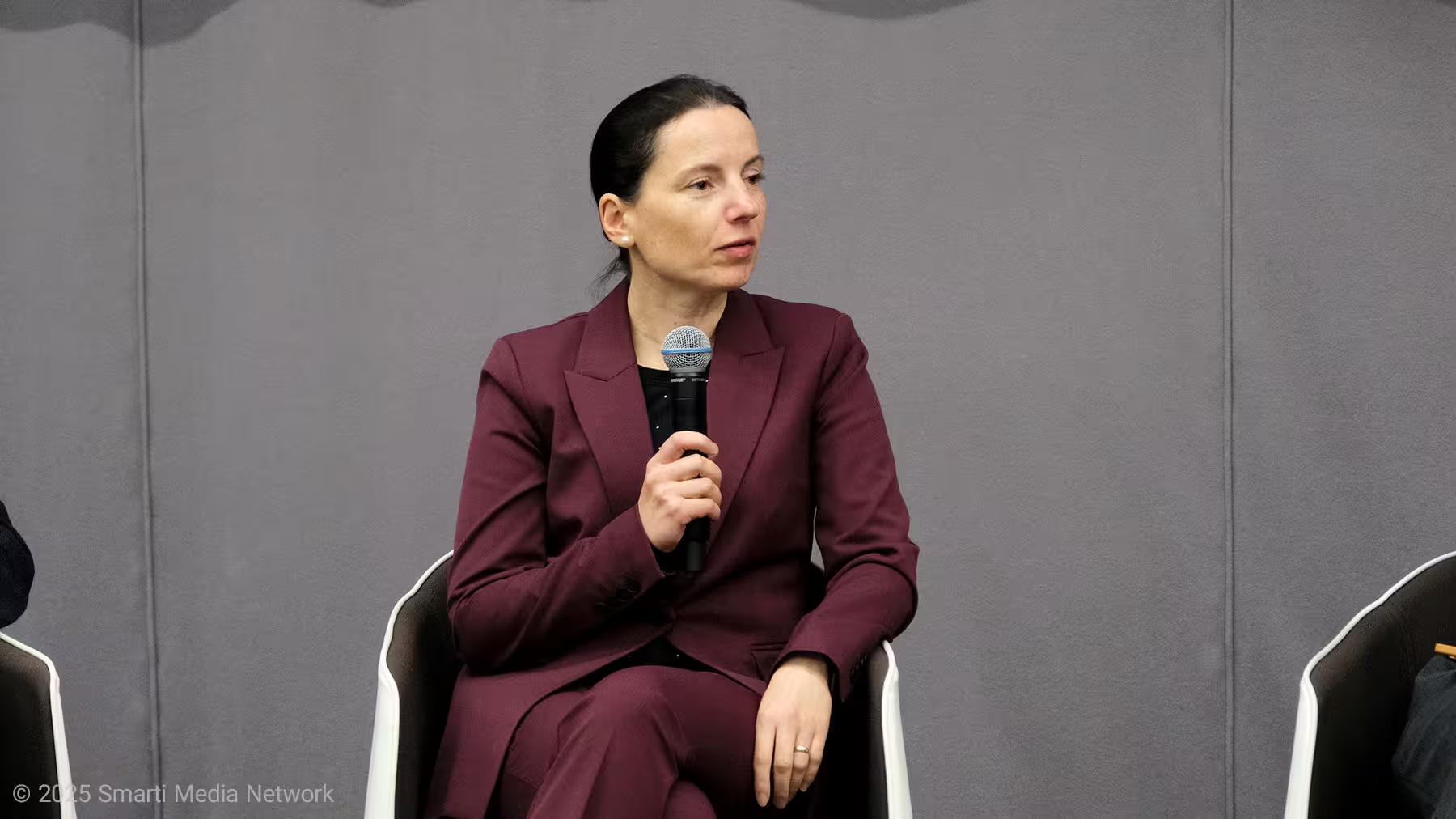
However, she admitted that the "risk avoidance" of companies creates a massive chasm. "Companies... usually expect a more mature solution," Babelytė-Labanauskė explained. "Investing is still an issue... It’s really easy to just sell and resell and have the low margin, but not really investing in developing."
This creates the classic "Valley of Death": Scientists are incentivized to publish papers, while companies only want to buy finished products. Neither side is willing—or able—to fund the messy, expensive middle ground of technological validation.
Part II: The Solution – "Customer Discovery" and Disruptive Tech Transfer
If the diagnosis was grim, the proposed solutions were radical. The panel moved beyond vague calls for "better communication" and outlined specific, actionable methodologies to bridge the gap.
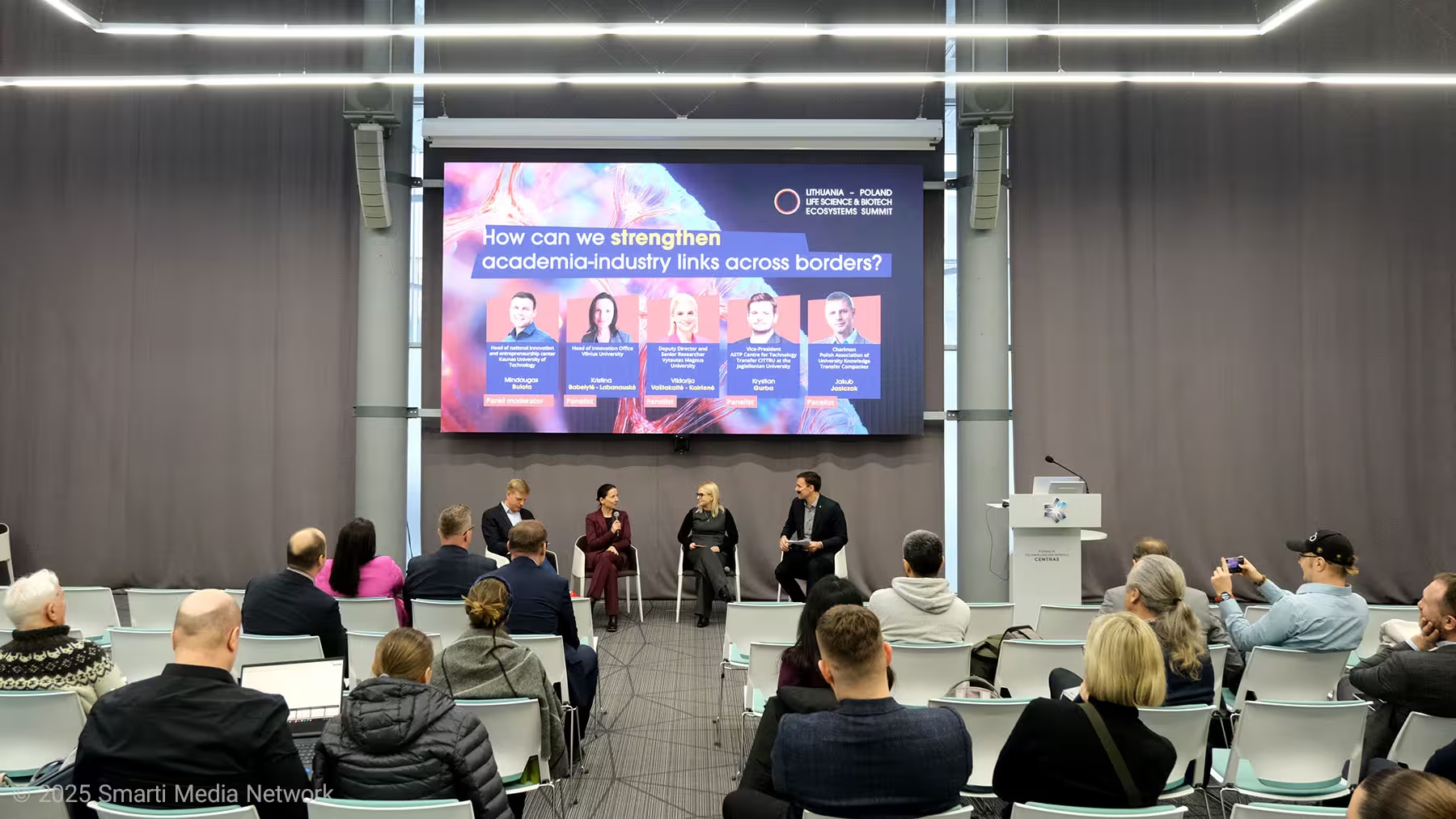
The "Customer First" Approach
Jasiczak detailed a strategy he implemented at the Institute of Human Genetics in Poland, which flips the traditional research model on its head. Instead of waiting for scientists to invent something and then looking for a buyer, the process begins with the market.
"For one year, I was building bridges with big pharma, with companies," Jasiczak recounted. "Why? Because I would like to have this possibility just to call them and to consult the ideas of my scientists before they write the grant proposal and take millions from public money."
He described a process of "Customer Discovery":
A scientist has an idea.
The tech transfer office calls a contact at a major player like Roche or Novo Nordisk.
They ask: "To the left or to the right? Is this stupid? Have you already done this?"
The feedback shapes the research before it even begins.
"If I can offer them this call... your ideas will be better, and there is a bigger chance—more than 2% now—that we will commercialize it," Jasiczak argued.
The Clash of KPIs
Viktorija Vaštakaitė-Kairienė emphasized that this collaboration requires a translator. "There are two different sides with two different working cultures... and different KPIs," she noted. "Scientists in academia focus on what they have to achieve [publications], and industry needs a product to sell."
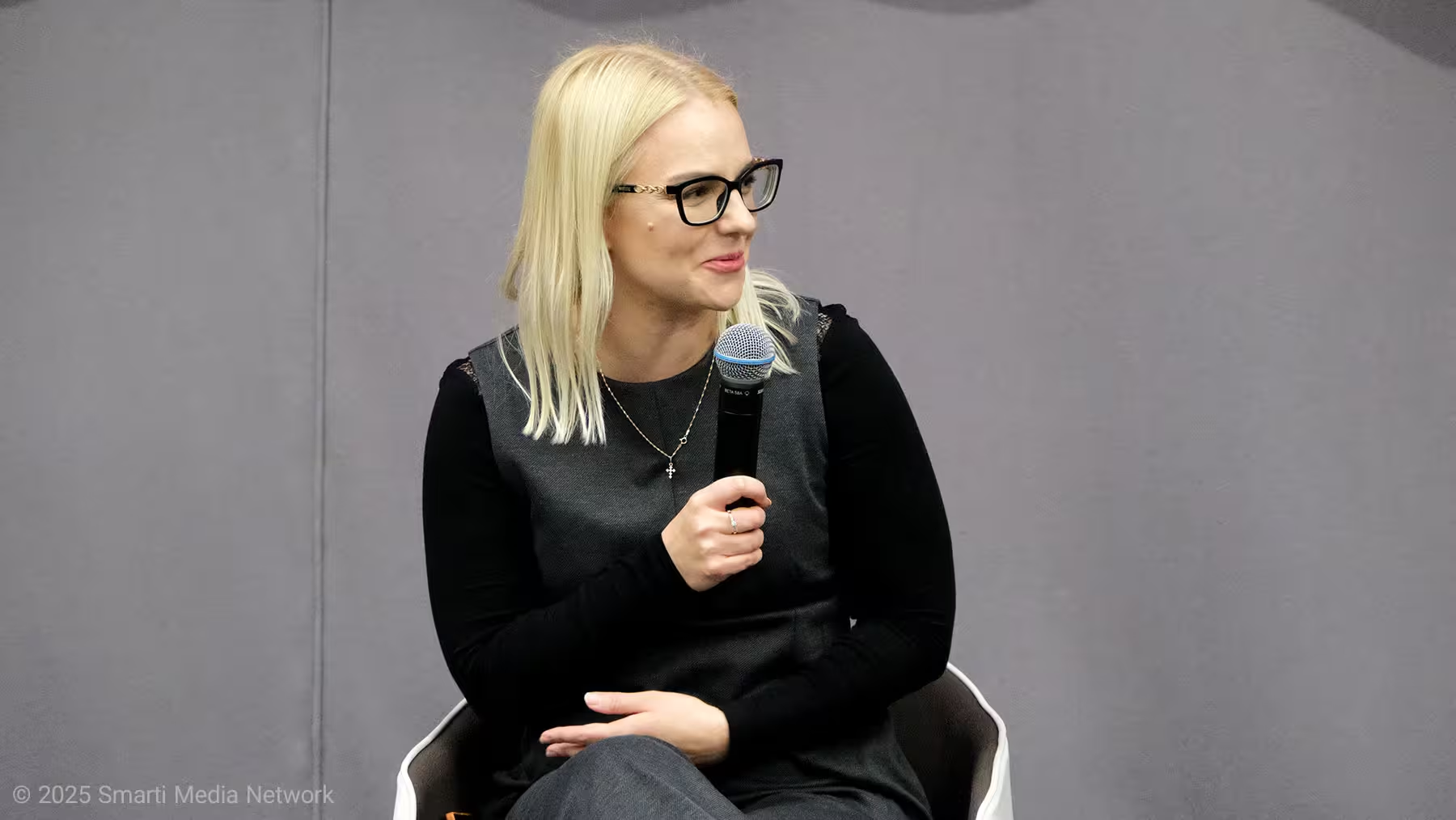
She highlighted that in the agricultural sector, the timeline mismatch is even more pronounced. Agriculture follows biological cycles that cannot be rushed, yet industry demands quarterly results. "The industry cannot wait... and cannot invest so much time and money and wait for the professors," she said. This is where the Technology Transfer Centers must act not just as brokers, but as buffers that manage expectations and translate scientific milestones into business deliverables.
Part III: The Legal Minefield – IP, Secrets, and “TEMO Lawyers”
A significant portion of the discussion was dedicated to the unglamorous but fatal aspect of innovation: Intellectual Property (IP) and Contracts.
Moderator Mindaugas Bulota pressed the panel on when IP should be discussed. The consensus? Immediately. But the execution is often flawed.
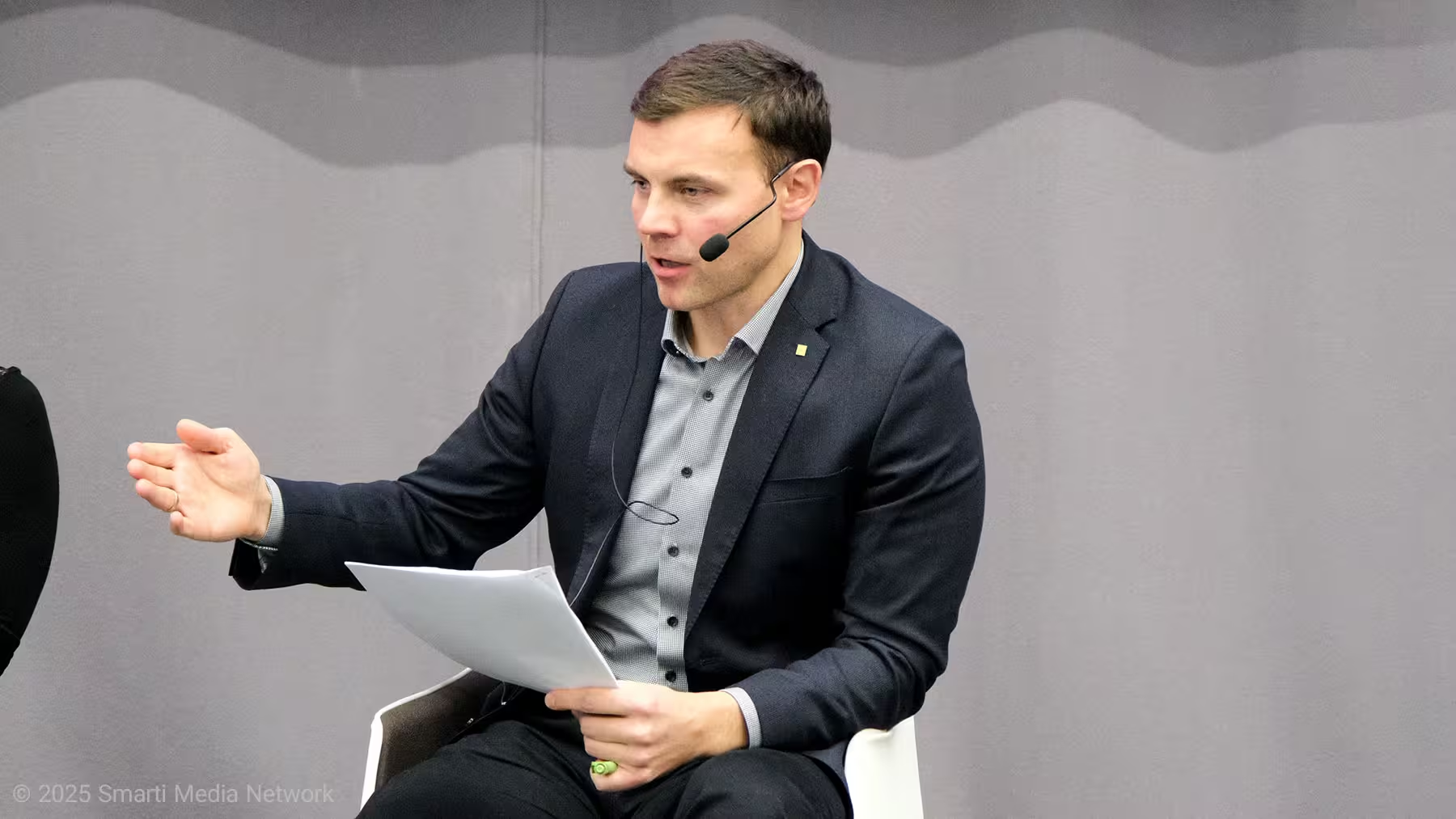
The Problem with "Cheap" Lawyers
Jasiczak warned against relying on inexperienced legal teams, disparagingly referring to them as "TEMO lawyers" (Technology Transfer lawyers who lack real-world deal experience). "We cannot have... lawyers that will just get you a very lousy agreement," he warned. "You need TRL [Technology Readiness Level] tested on the industry line... everything in the agreement."
He advocated for pooling resources. If a single institute cannot afford a top-tier IP lawyer who understands deep tech, institutes should form a consortium to hire one. "Big companies are ready to have good agreements. We need to be on the same page with them," he said.
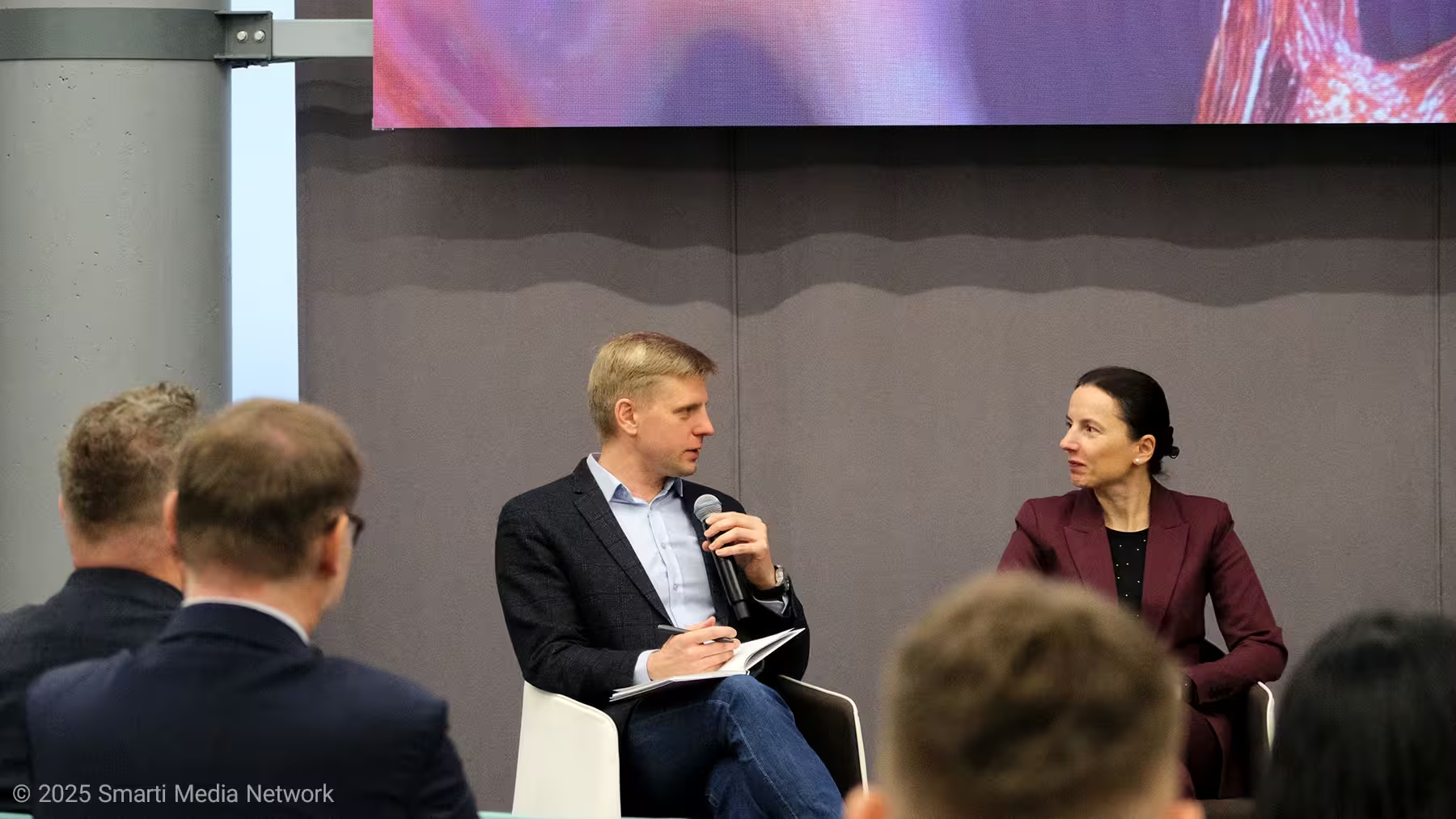
Patents vs. Trade Secrets
Kristina Babelytė-Labanauskė brought up a nuanced point regarding the obsession with patents. In the software and IT sectors, and increasingly in biotech, patenting isn't always the right route. "When companies come and say, 'We want this knowledge... because it's going to be a commercial secret,'... it's also a way of collaborating," she explained.
Transferring knowledge as "Confidential Information" or a "Trade Secret" can be faster and cheaper than the arduous patent process. However, this clashes with the scientist's need to publish. Viktorija Vaštakaitė-Kairienė shared a creative workaround from a recent EURECA project involving Polish and Lithuanian partners. "We had to split the patents... and we managed how to publish and how to split the applications," she said, noting that it required "creativity" to satisfy both the researchers' need for citations and the companies' need for exclusivity.
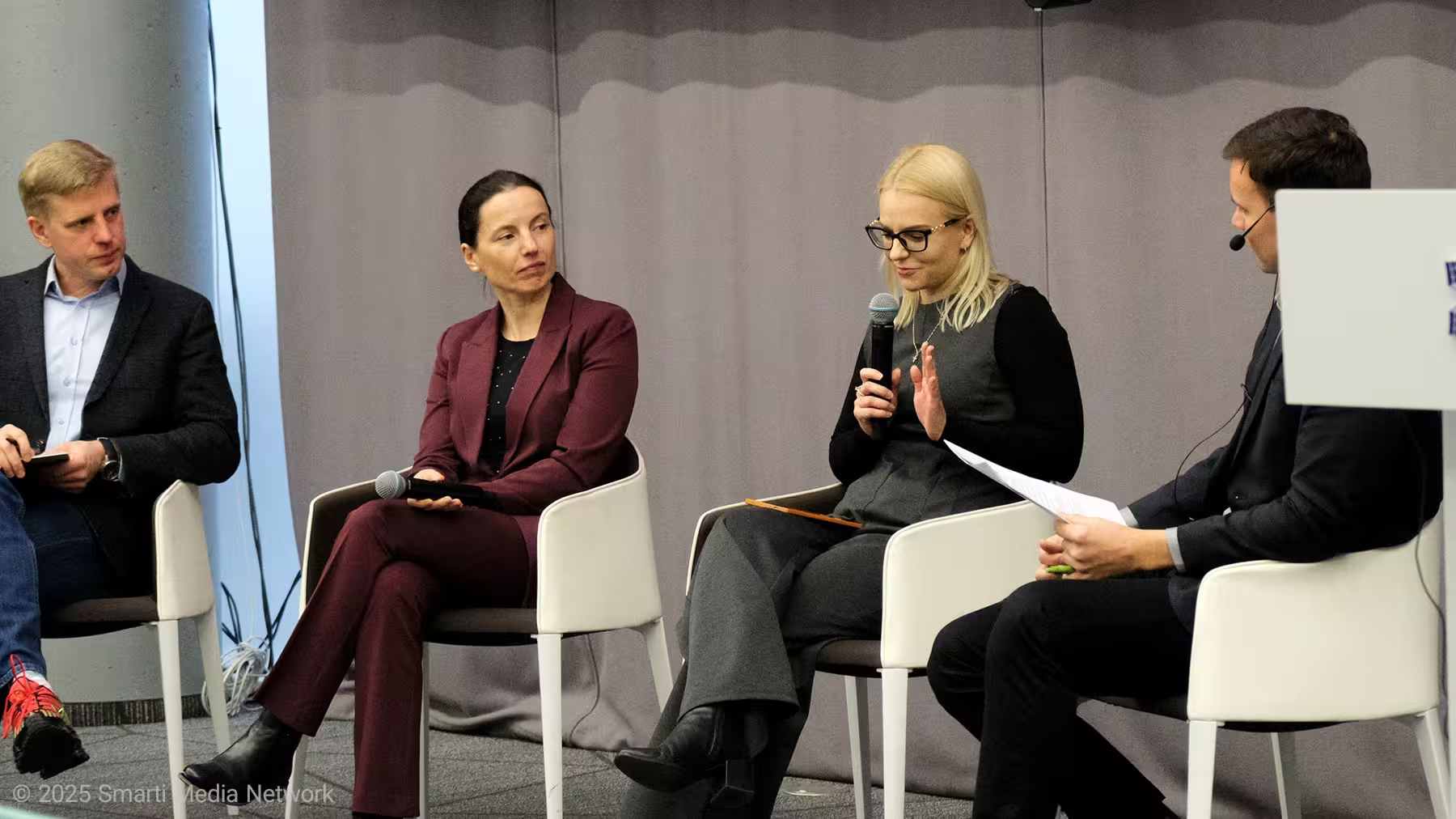
Part IV: The Investment Landscape – Beyond “Apps for Cat Owners”
The panel took a critical look at the role of Venture Capital (VC) in the ecosystem. The verdict was mixed: while the situation is improving, the region is still plagued by “impatient capital.”
The Failure of Generalist VCs
Jasiczak did not mince words regarding the history of public venture capital in Poland. "We made all the mistakes," he admitted. "For them, it was only burning the money and quick wins like, you know, a mobile app for cat owners."
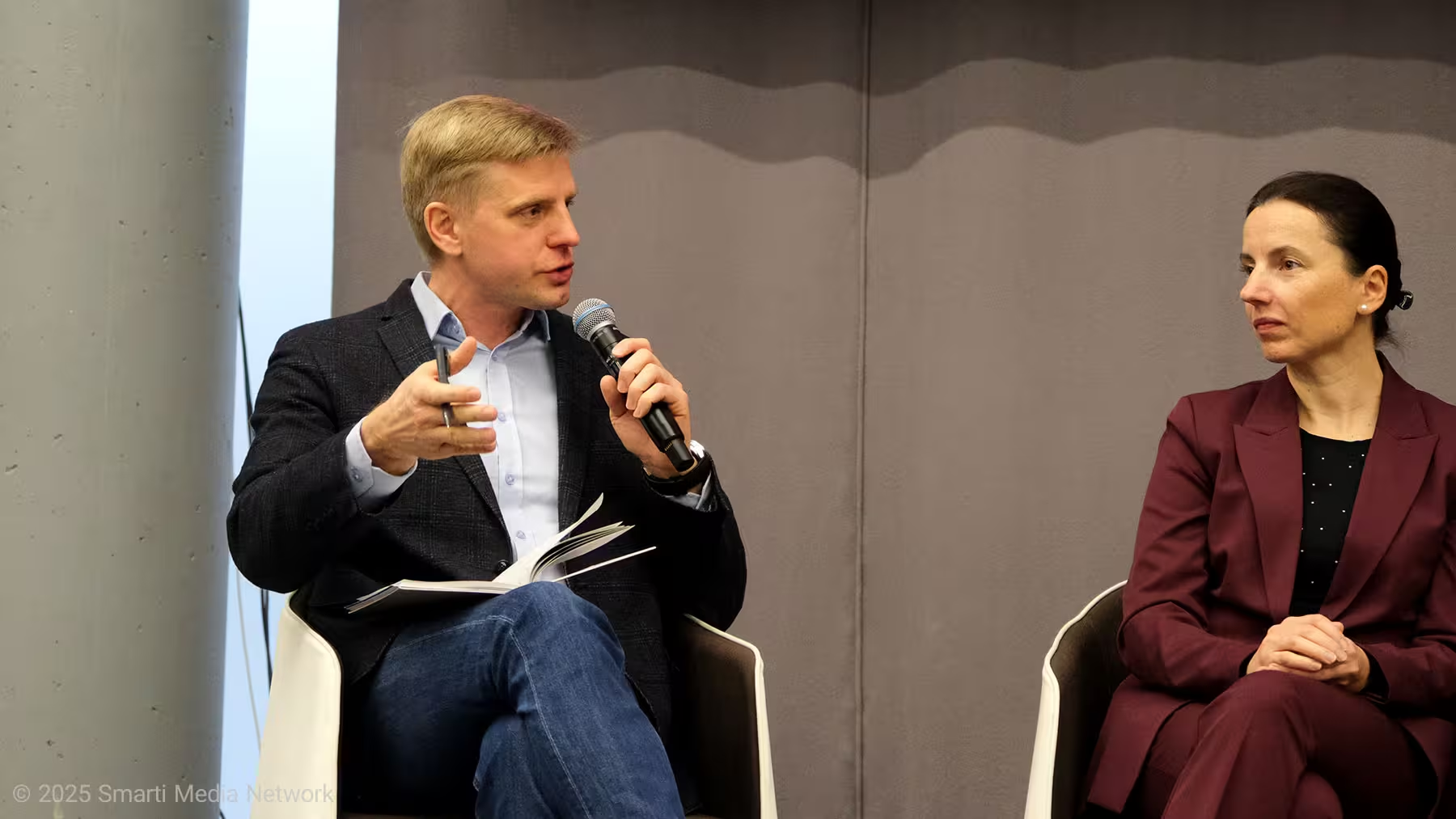
He argued that generalist VCs are incapable of evaluating or supporting Deep Tech. To address this, Poland’s development funds now impose strict criteria on VCs seeking public money for Deep Tech:
Worldwide Industry Contacts: Local networks are not enough.
STEAM Experts on Board: Not just "a friend who is a scientist," but full-time technical staff.
Proven Track Record: Experience in taking science to market.
The "White Horse" Fallacy
A recurring theme was the danger of relying on American investors or foreign "saviors" to fix the local ecosystem. "I would really like to convince you not to be naive in terms of the US," Jasiczak warned. "They take public money, take brain drain, IP drain to move to the US. Nothing stays in your country."
He advocated for a model of "Patriotic Capital"—convincing local pension funds, wealthy individuals, and state-owned companies to invest in Deep Tech. "We have money in Europe. There is only not this understanding why to invest in deep tech," he asserted.
Kristina Babelytė-Labanauskė agreed that finding Life Sciences-focused investors locally is difficult ("These are rare to find"), but noted a positive trend: VCs are starting to step into the role of educators, running acceleration programs for students. This helps bridge the "Ambition Gap" early on.
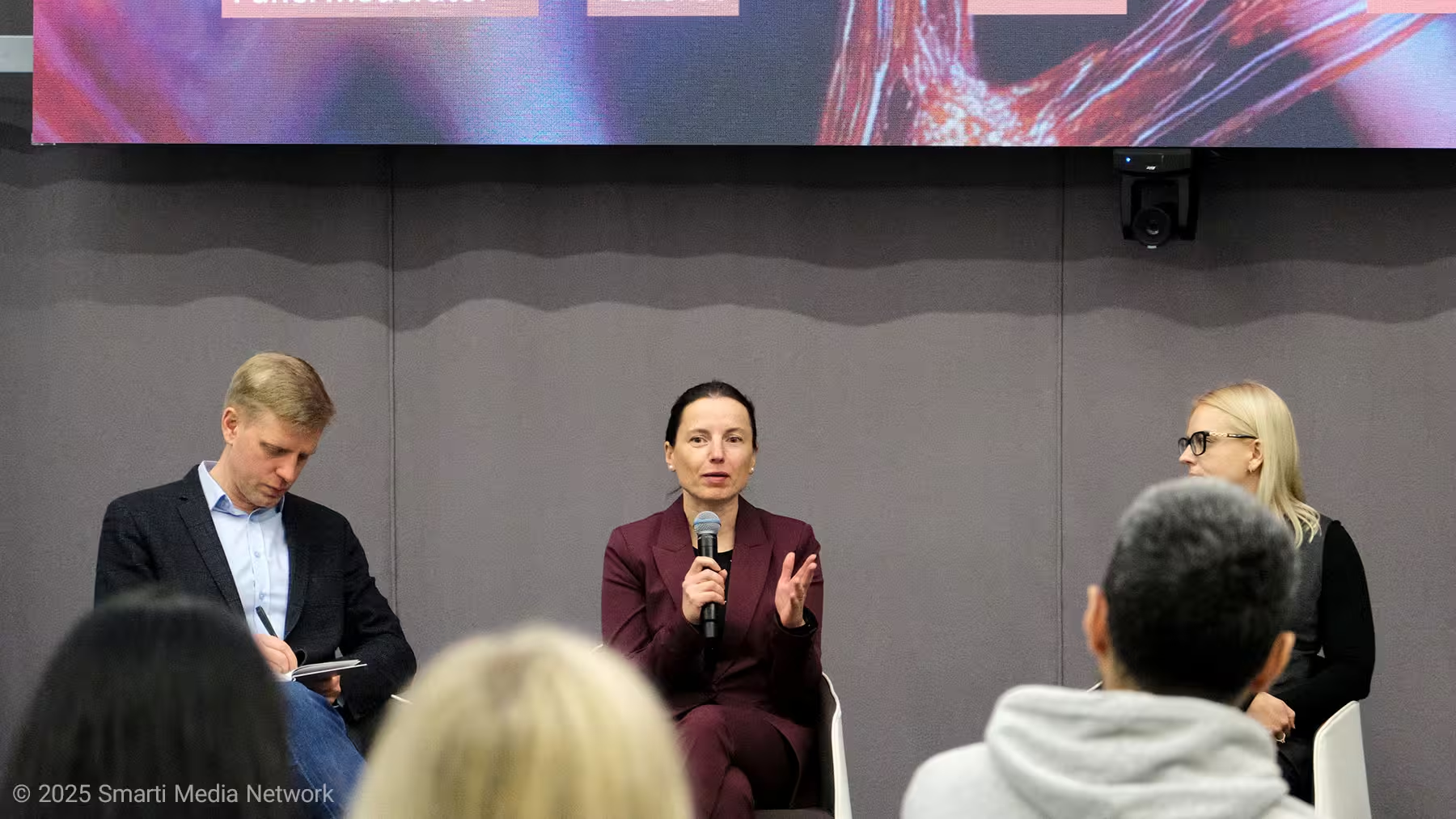
Part V: Infrastructure – "Dusty Museums" or Innovation Hubs?
The debate over Open Access Infrastructure—the idea that expensive lab equipment should be shared—revealed a stark contrast between theory and reality.
The Polish Reality: “Museums of the Professor”
Jasiczak painted a bleak picture of how infrastructure is often managed in Poland. "We build stadiums for millions of euros... and it's dusty and it's like the museum of the professor, and he's not giving the keys to anybody because this is his museum," he said.
He criticized the lack of a "Code of Conduct" for AI factories and laboratories, which leaves access up to the whims of individual administrators. His solution? AI Agents. "Stop thinking about building [web] platforms to cooperate," he urged. “We need an AI agent with total access to infrastructure... that will just get you easy access to the infrastructure, conditions, money, everything.”
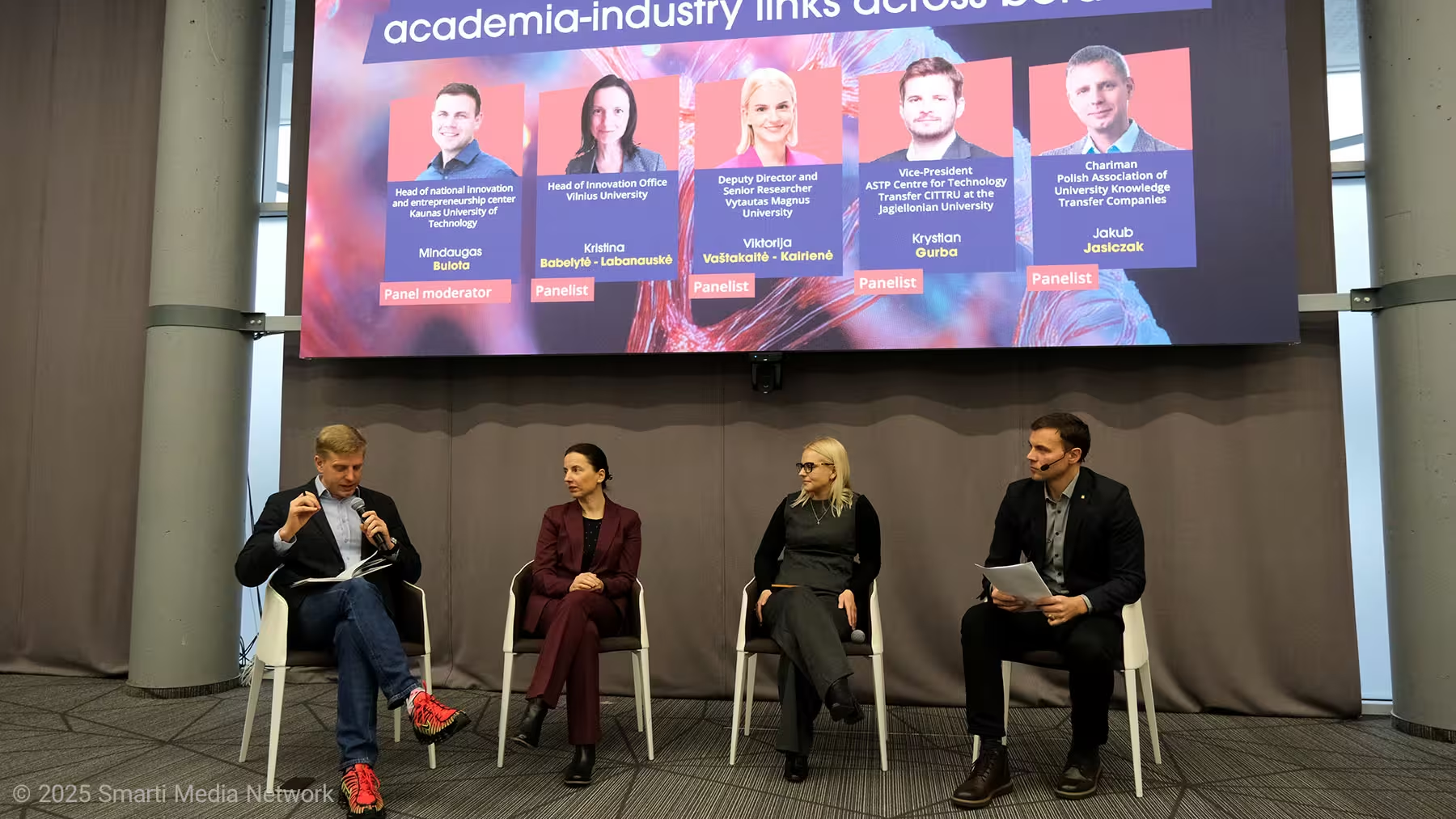
The Lithuanian Optimism: Changing Culture
Viktorija Vaštakaitė-Kairienė disagreed with the pessimistic view, citing the development of a new Agro-Biotech Park in Lithuania. "We are creating a place for the industries where they could come... very close to the academia," she said. "I believe that all together, we can make something big."
Kristina Babelytė-Labanauskė also defended the progress made. "I wouldn't really exaggerate that professors are locking their labs," she countered. "There are certain individuals who do that... but my mission is changing the culture within the university." She highlighted successful collaborations with Jagiellonian University in Krakow as evidence that the "museum" mentality is dying out with the older generation.
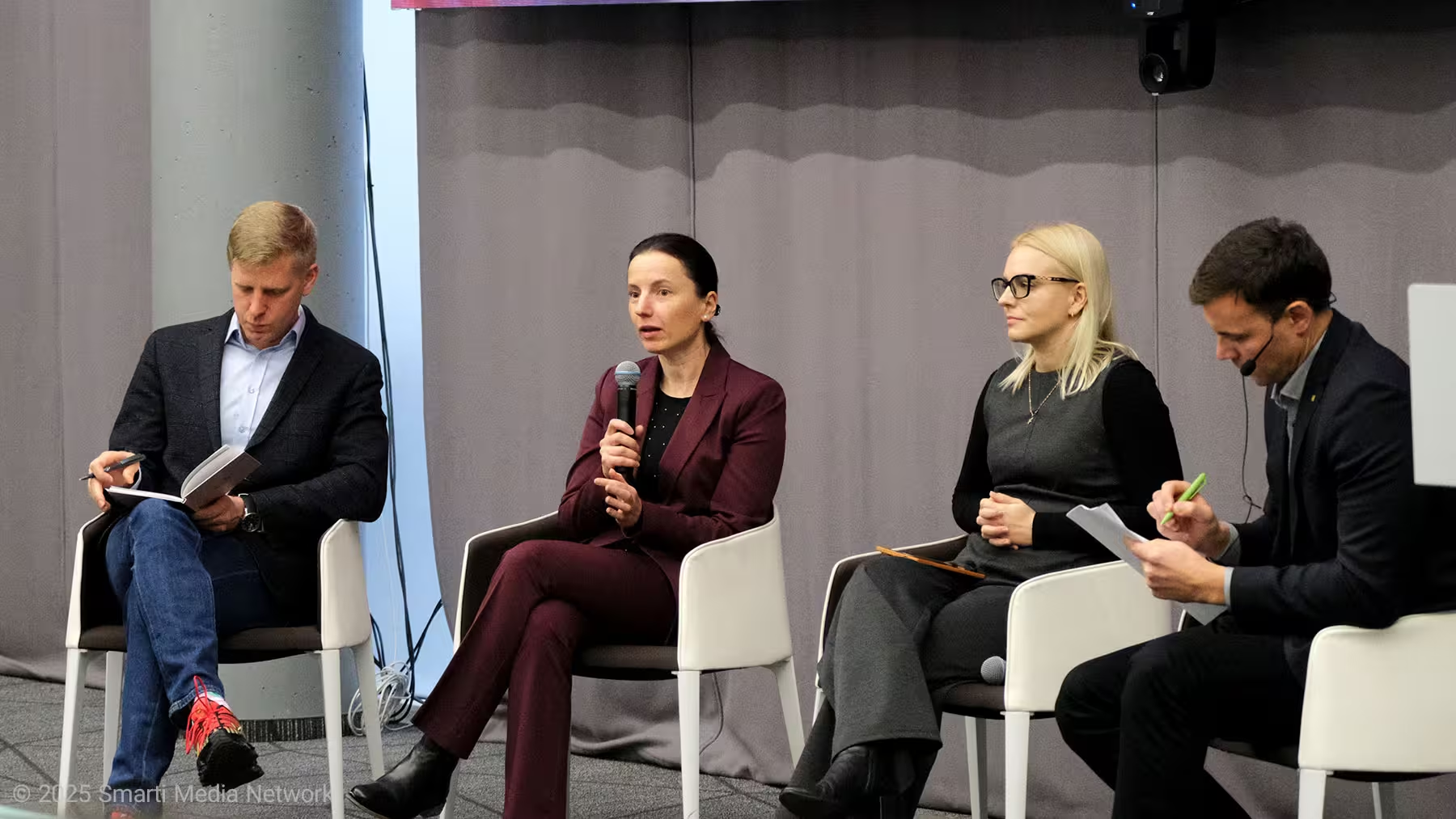
Part VI: Future Horizons – Quantum and Cultivated Meat
As the panel concluded, the speakers were asked to predict the "Next Big Thing" for the region. The answers highlighted where Lithuania and Poland might find their niche in the global "war."
Quantum Technologies: Jasiczak conceded that "We already lost the battle in AI. It's done." However, he pointed to Quantum Computing as a field where Europe still has a chance to be a leader if it acts now.
Interdisciplinarity: Babelytė-Labanauskė argued that the future lies not in a single technology, but in the convergence of fields—physics meeting biology, or IT meeting medicine.
High-Value Agriculture: Vaštakaitė-Kairienė pointed to Genetics and Cultivated Meat. She shared an anecdote from Wageningen, where cultivated meat is already being exported to the US. "My wish is that we would export much more high-value products from agriculture, not just grain," she concluded.
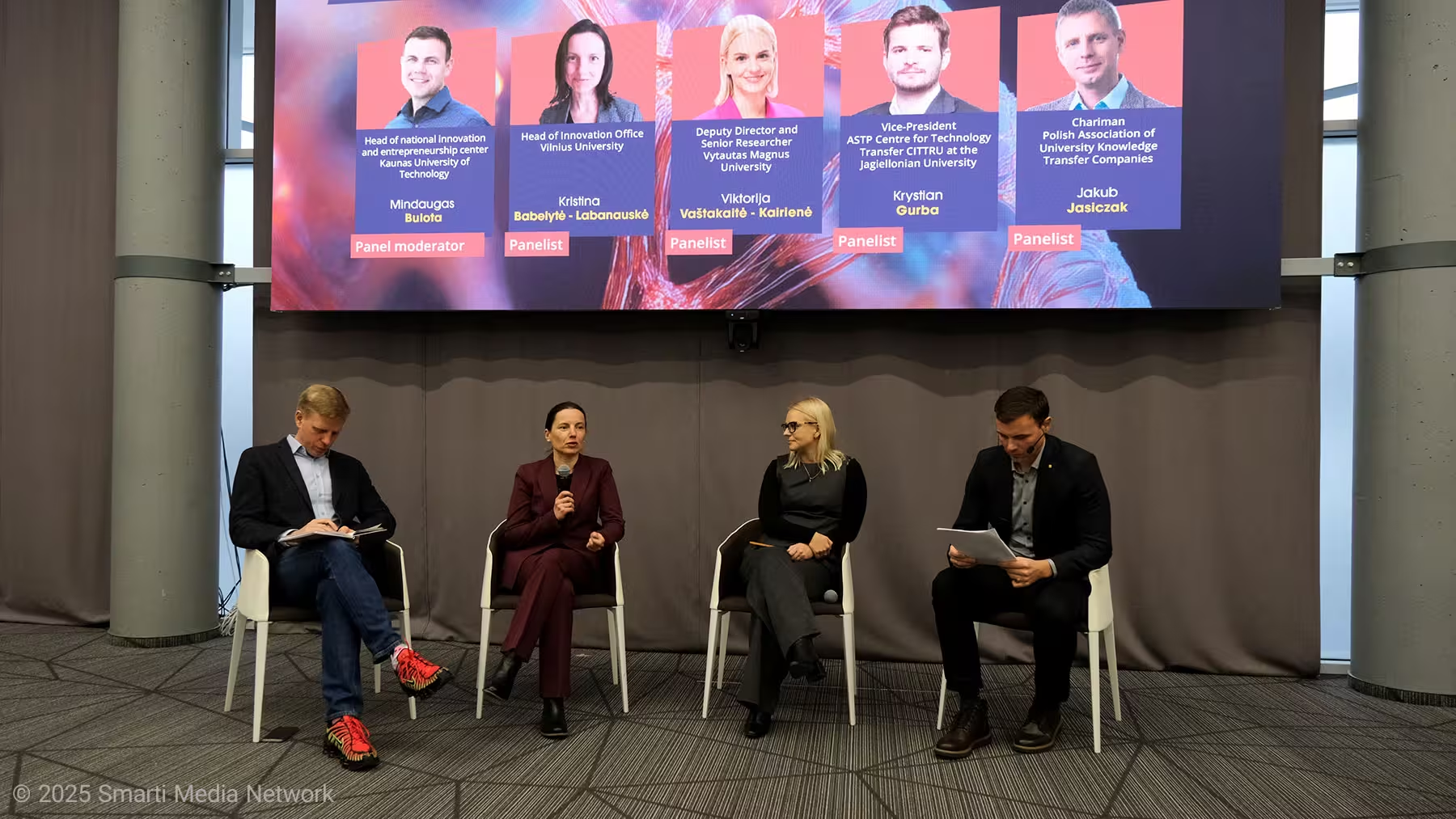
Conclusion: A Call for Unified Strategy
The panel at the Lithuania-Poland Summit was more than a discussion; it was a strategic roadmap. The takeaway was clear: The era of "naive" cooperation and "easy" software startups is over.
To survive the global competition, the region must:
Prioritize Priorities: Stop funding everything. Pick key battles (like Quantum or Biotech) and go all in.
Professionalize Transfer: Replace "commissioned research" with deep, strategic partnerships based on customer discovery.
Protect Assets: Keep IP and talent within the region rather than handing it over to foreign entities for quick cash.
Unlock Infrastructure: Use digital tools to force open the "professor's museums" and make equipment available to startups.
As the panelists departed, the message to the audience—and to the ministries watching—was unambiguous: Cooperate or Perish.
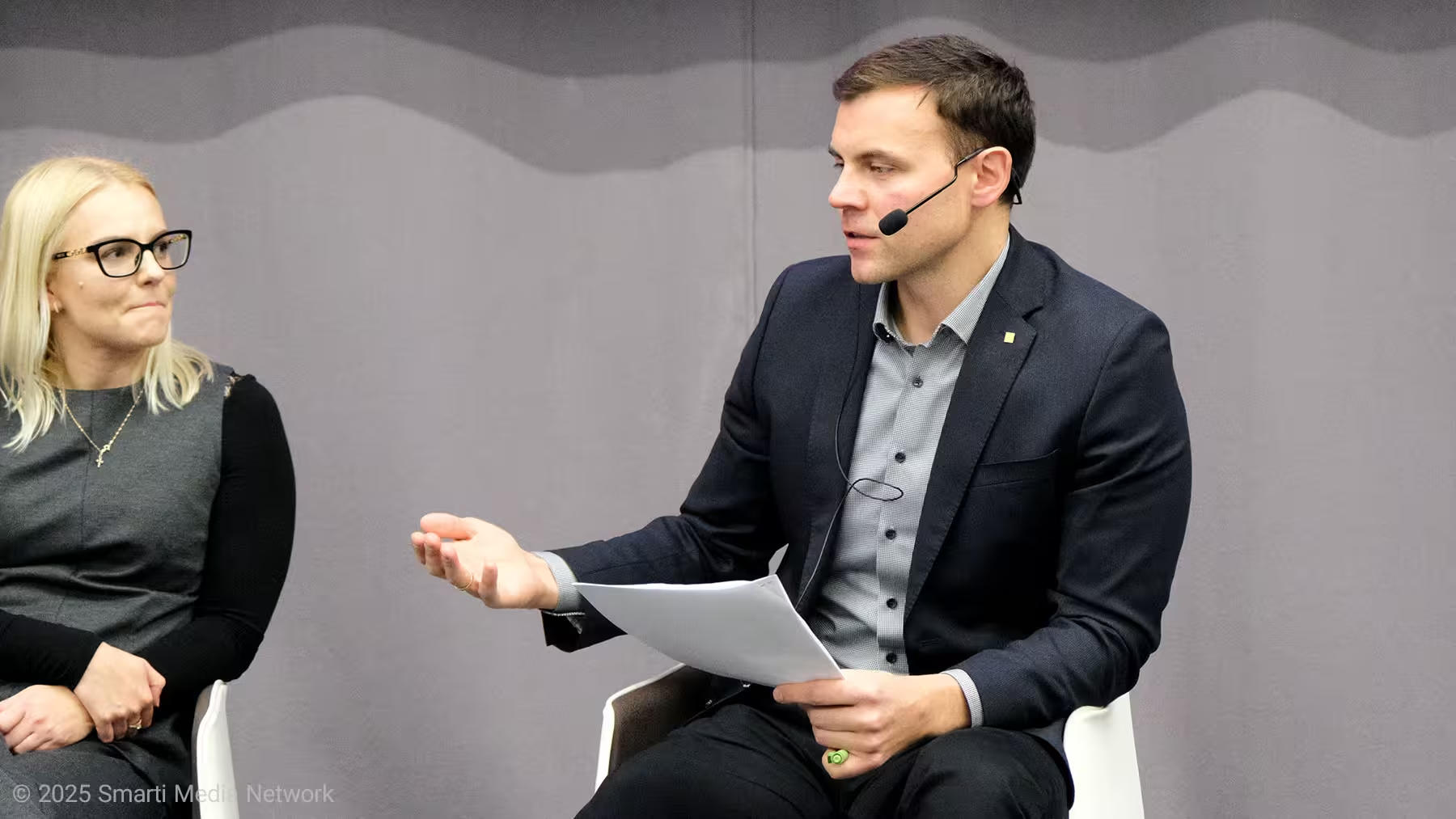
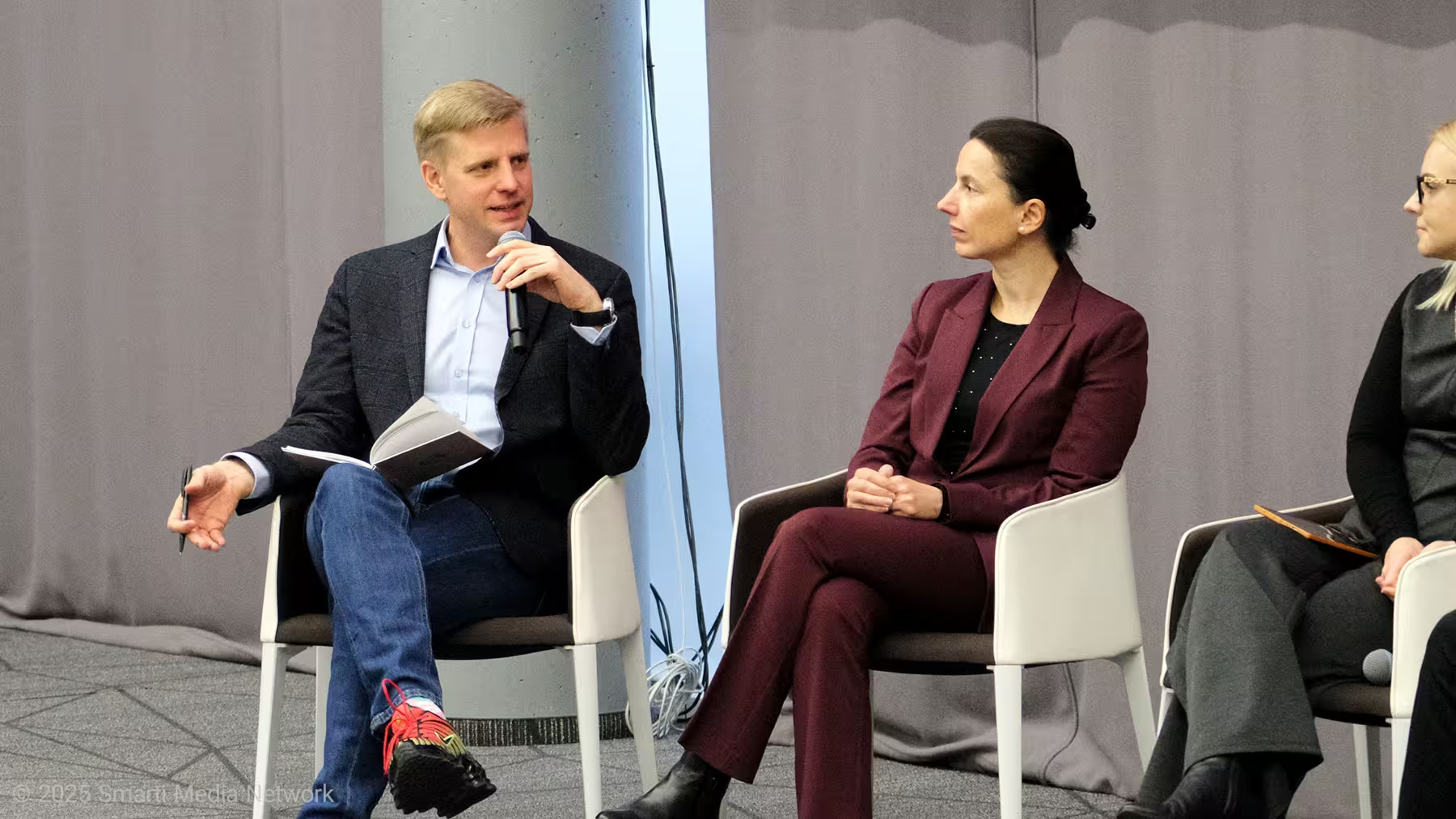 | 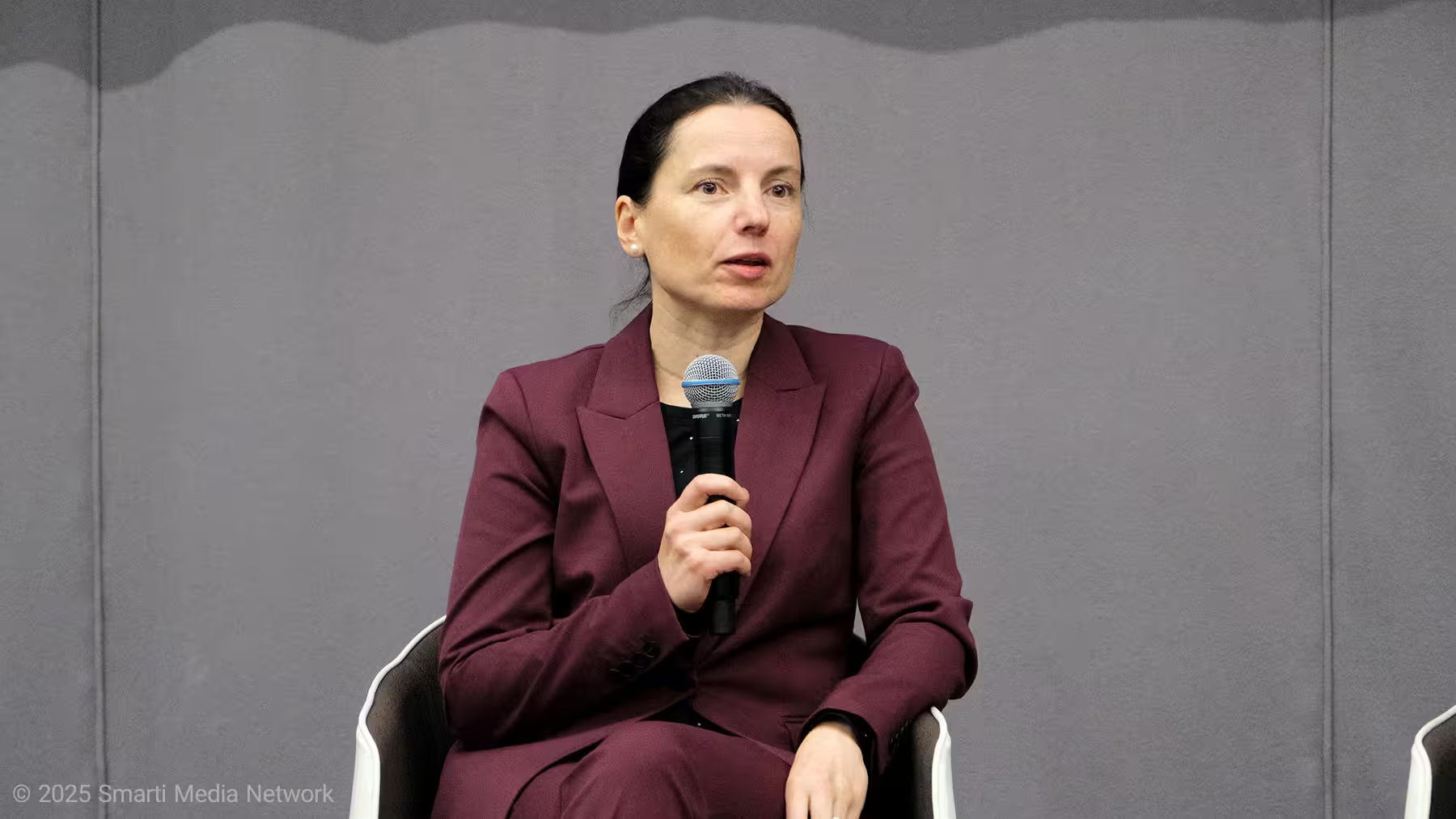 | 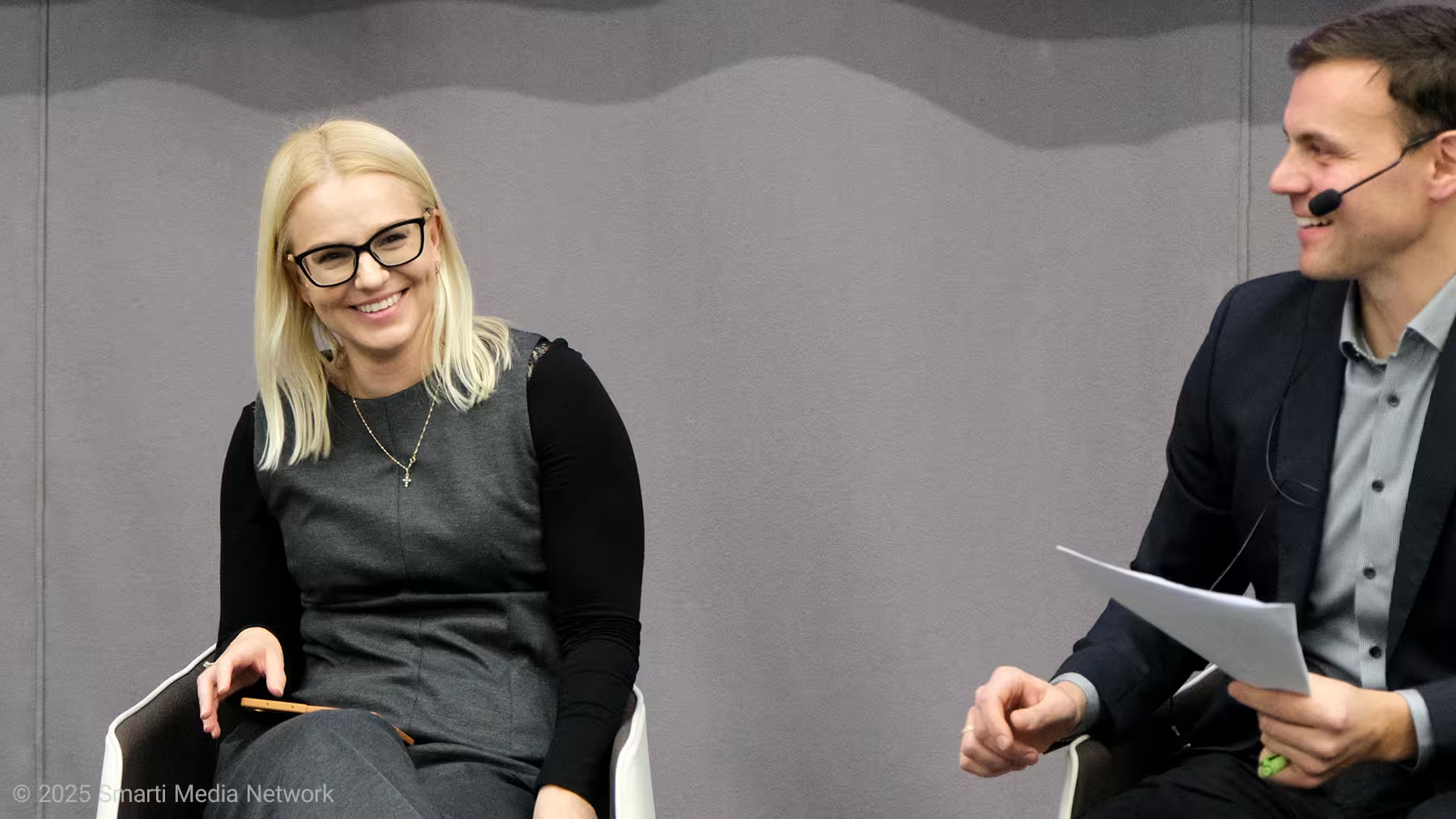 | 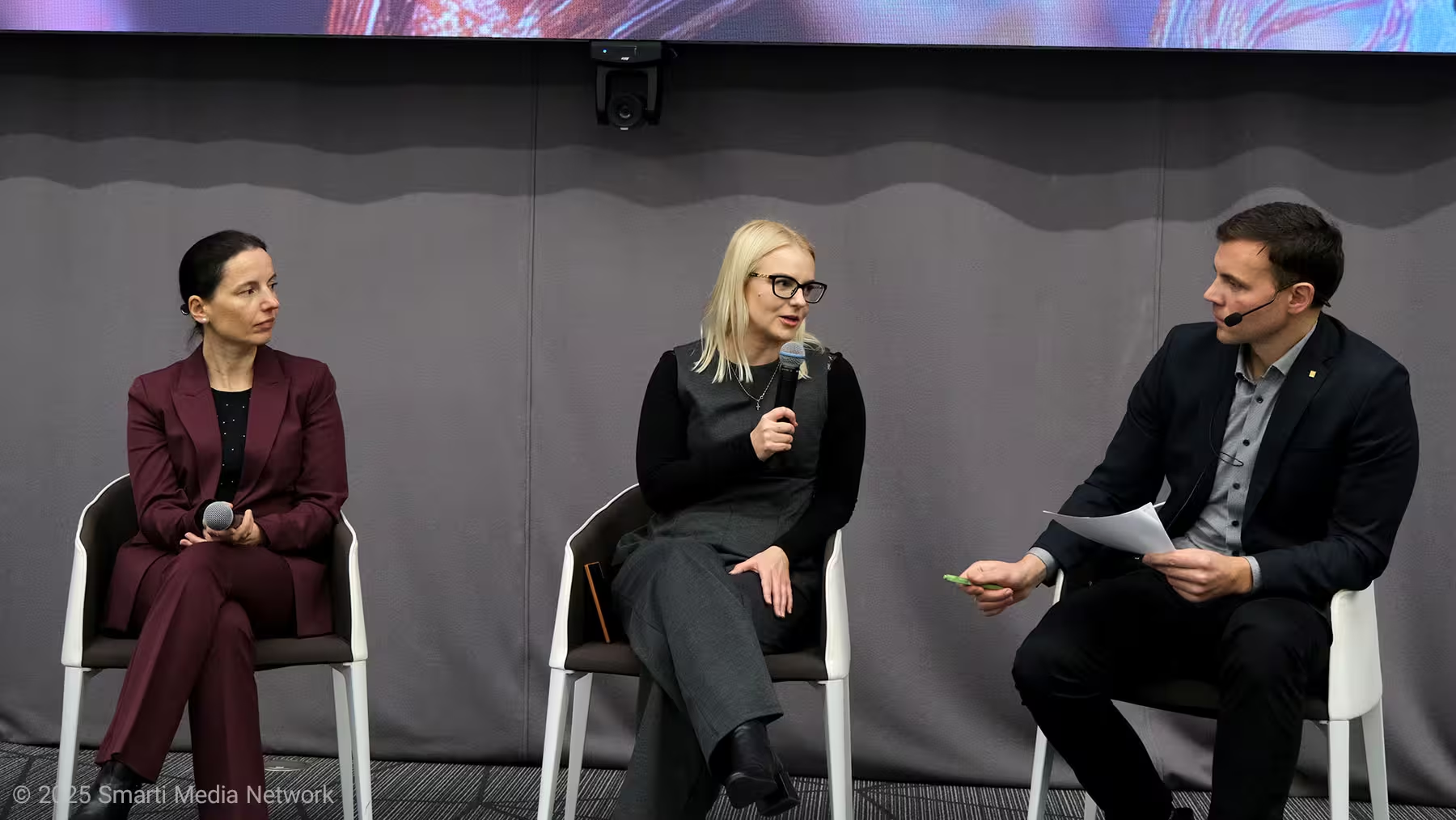 |
Comments
Marius
Pretty balanced take, but 'patriotic capital' feels idealistic. Who moves first govt, pension funds or startups? curious.
deepmotor
i've seen this in a spinout I helped, labs hoard gear, VCs chase quick wins. Customer discovery helps, but requires grit, time, real money
bioNix
is this even true? patents vs trade secrets debate sounds messy, how do you keep pubs and secrecy? tricky..
datapulse
Wow, didn’t expect such blunt talk. 'We are at war' sounds extreme but kinda true... Europe needs to wake up, fast!

.webp)
Leave a Comment